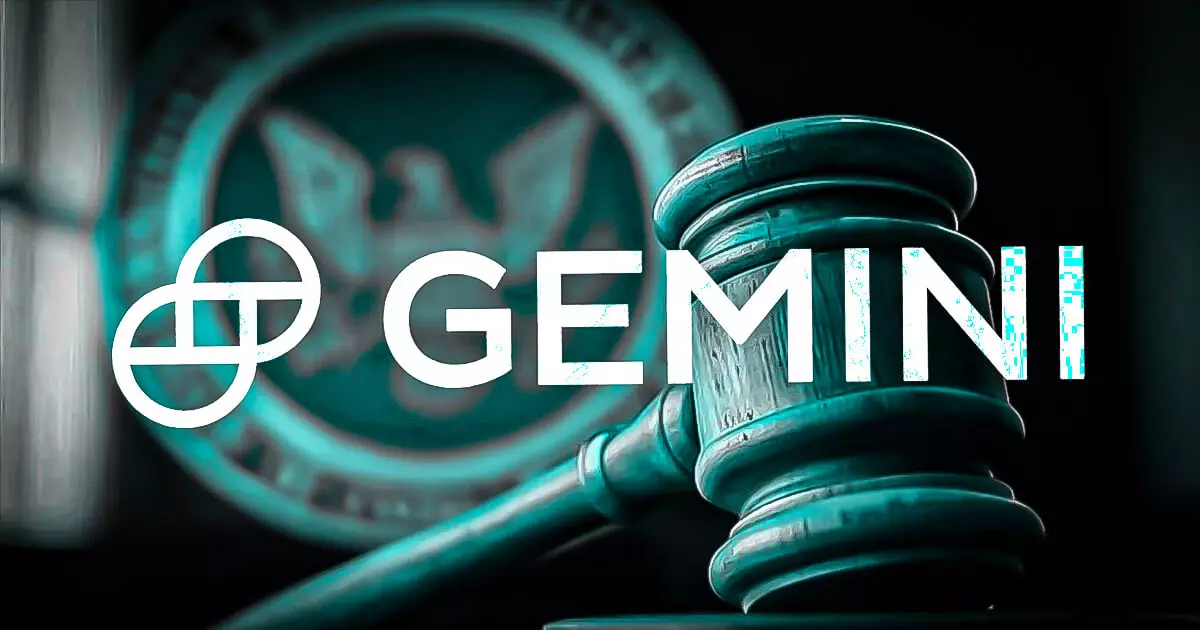Cameron Winklevoss, co-founder of the cryptocurrency exchange Gemini, has raised significant concerns regarding the conduct and accountability of the U.S. Securities and Exchange Commission (SEC). His recent statements call for not only a reconsideration of the agency’s approach to cryptocurrency but also for practical reforms intended to curtail overreach. Highlighting the SEC’s withdrawal from its long-standing investigation into Gemini, Winklevoss emphasized that while the termination of the inquiry is welcome, it does little to address the substantial damage inflicted during the nearly two-year investigation.
As Winklevoss disclosed on February 26, this withdrawal came without any charges being levied against Gemini, a development that should be seen as indicative of the SEC’s shifting strategy concerning cryptocurrency regulation. Importantly, this shift aligns with the SEC’s recent pattern of rescinding investigations into other major crypto players, including OpenSea, Robinhood, and Uniswap, and pausing ongoing litigation against Binance. While the conclusion of these investigations may suggest a less hostile environment for crypto firms, Winklevoss remains cautious and critical of the overall impact these prolonged inquiries have on the industry.
According to Winklevoss, the SEC’s drawn-out inquiries have had far-reaching implications on the broader crypto industry and the American economy, estimating that Gemini alone incurred legal expenses amounting to tens of millions of dollars. His assertion that hundreds of millions in potential productivity and innovation have been lost due to the oppressive regulatory atmosphere reflects a profound concern for the future of crypto entrepreneurship in the U.S. In his view, such regulatory back-and-forth serves to deter talented engineers and entrepreneurs from entering the space, with many potentially abandoning promising projects in the face of what they perceive as hostile oversight.
Winklevoss’s comments suggest a pervasive fear among industry players that regulatory scrutiny could hinder growth and stave off creative ideas before they can even materialize. This caution reaches beyond just the reputational harm suffered by Gemini; it is emblematic of a wider sentiment that the current regulatory environment stifles potential innovations necessary for the advancement of technology and financial systems.
Demanding Accountability and Transparency
In a bold move to address what he perceives as regulatory excess, Winklevoss proposed a framework for accountability that would hold the SEC and its officials responsible for their actions. His recommendation for reimbursing companies triple their legal costs in the absence of charges emphasizes a growing call for fairness in regulatory practice. He also suggested the permanent barring of SEC officials who are found to misuse their authority in enforcement actions, advocating for a system where individuals like SEC Chairman Gary Gensler could face severe repercussions for actions deemed as weaponizing the law against numerous firms in the cryptocurrency space.
This notion of accountability echoes sentiments within many sectors that have faced similar challenges from regulatory bodies. Winklevoss argues passionately that without establishing tangible consequences for reckless regulatory action, agencies like the SEC will continue to perpetuate a culture of fear and uncertainty—one that not only stifles innovation but ultimately undermines the very economic growth they purport to protect.
Ultimately, Winklevoss’s message serves as a warning against complacency in regulatory practices. He insists that lacking true accountability for bureaucrats involved in misguided enforcement against the cryptocurrency sector may lead to an ongoing cycle of disruption that stifles not just innovation within crypto but will ripple out to affect the wider economy. The need for reform appears urgent; unless effective measures are enacted to balance the need for oversight with the imperative to foster an environment conducive to innovation, the legacy of this regulatory environment may leave a regrettable mark on America’s economic landscape.
As the cryptocurrency industry continues to evolve, it is vital that regulators adopt a more collaborative approach with stakeholders, one that seeks to protect consumers without unnecessarily stifling the growth of groundbreaking ideas. In doing so, they can help to rebuild the trust that has been compromised and ensure that innovation can once again thrive.















